Letters, Riddles and Writs is a one act opera for television by Michael Nyman broadcast in 1991. The story is devised by Nyman, with a libretto by Jeremy Newson and Pat Gavin that incorporates Emily Anderson's English translations of correspondence and other texts by Wolfgang Amadeus Mozart, the subject of the opera.
The opera premiered on the BBC television miniseries, Not Mozart , directed by Newson and Gavin. Ute Lemper played the role of Mozart. Nyman appears as a court pianist instructed to play an "offending extract" of the String Quartet in E flat major, K. 428 when Joseph Haydn (Julian Glover) accuses Mozart of musical plagiarism in court, and Mozart complains that Nyman has slowed down his chords. This section of the opera is an opera buffa-style interlude. The majority of the opera is more serious. Extracts of the opera are featured on The Michael Nyman Songbook and Mozart 252 .
The film also features David Thomas (bass-baritone) as Leopold Mozart and Tony Rohr as Ludwig van Beethoven.

Antonio Salieri was an Italian composer and teacher of the classical period. He was born in Legnago, south of Verona, in the Republic of Venice, and spent his adult life and career as a subject of the Habsburg monarchy.

Wolfgang Amadeus Mozart was a prolific and influential composer of the Classical period. Despite his short life, his rapid pace of composition resulted in more than 800 works of virtually every genre of his time. Many of these compositions are acknowledged as pinnacles of the symphonic, concertante, chamber, operatic, and choral repertoire. Mozart is widely regarded as among the greatest composers in the history of Western music, with his music admired for its "melodic beauty, its formal elegance and its richness of harmony and texture".

Don Giovanni is an opera in two acts with music by Wolfgang Amadeus Mozart to an Italian libretto by Lorenzo Da Ponte. Its subject is a centuries-old Spanish legend about a libertine as told by playwright Tirso de Molina in his 1630 play El burlador de Sevilla y convidado de piedra. It is a dramma giocoso blending comedy, melodrama and supernatural elements. It was premiered by the Prague Italian opera at the National Theater, now called the Estates Theatre, on 29 October 1787. Don Giovanni is regarded as one of the greatest operas of all time and has proved a fruitful subject for commentary in its own right; critic Fiona Maddocks has described it as one of Mozart's "trio of masterpieces with librettos by Da Ponte".
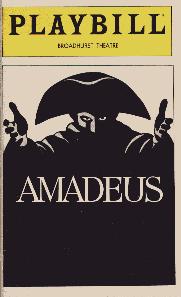
Amadeus is a play by Peter Shaffer which gives a fictional account of the lives of composers Wolfgang Amadeus Mozart and Antonio Salieri, first performed in 1979. It was inspired by Alexander Pushkin's short 1830 play Mozart and Salieri, which Nikolai Rimsky-Korsakov used in 1897 as the libretto for an opera of the same name.

Michael Laurence Nyman, CBE is an English composer, pianist, librettist, musicologist, and filmmaker. He is known for numerous film scores, and his multi-platinum soundtrack album to Jane Campion's The Piano. He has written a number of operas, including The Man Who Mistook His Wife for a Hat; Letters, Riddles and Writs; Noises, Sounds & Sweet Airs; Facing Goya; Man and Boy: Dada; Love Counts; and Sparkie: Cage and Beyond. He has written six concerti, five string quartets, and many other chamber works, many for his Michael Nyman Band. He is also a performing pianist. Nyman prefers to write opera over other forms of music.

Drowning by Numbers is a 1988 British-Dutch film directed by Peter Greenaway. It won the award for Best Artistic Contribution at the Cannes Film Festival of 1988.

Idomeneo, re di Creta ossia Ilia e Idamante is an Italian-language opera seria by Wolfgang Amadeus Mozart. The libretto was adapted by Giambattista Varesco from a French text by Antoine Danchet, based on a 1705 play by Crébillion père, which had been set to music by André Campra as Idoménée in 1712. Mozart and Varesco were commissioned in 1780 by Karl Theodor, Elector of Bavaria for a court carnival. He probably chose the subject, though it may have been Mozart. The work premiered on 29 January 1781 at the Cuvilliés Theatre in Munich, Germany.
The Man Who Mistook His Wife for a Hat is a one-act chamber opera by Michael Nyman to an English-language libretto by Christopher Rawlence, adapted from the case study of the same name by Oliver Sacks by Nyman, Rawlence, and Michael Morris. It was first performed at the Institute of Contemporary Arts, London, on 27 October 1986.

Michael Nyman is the third album release by Michael Nyman and the second with the Michael Nyman Band, having previously contributed tracks to new music compilations. Most of the music was material from early films by Peter Greenaway such as "Bird List Song" from The Falls, sung by Lucie Skeaping, and music from Act of God and Tree.

The Michael Nyman Songbook is a collection of art songs by Michael Nyman based on texts by Paul Celan, Wolfgang Amadeus Mozart, William Shakespeare and Arthur Rimbaud. It was recorded as an album with Ute Lemper in 1991, and again as a concert film in 1992, under the direction of Volker Schlöndorff, again with Ute Lemper, though many of the musicians had changed. The songs have been recorded by others and as instrumentals, and are published by Chester Music. The album has been issued by both London Records and Argo Records, though the covers are the same except for the logo.
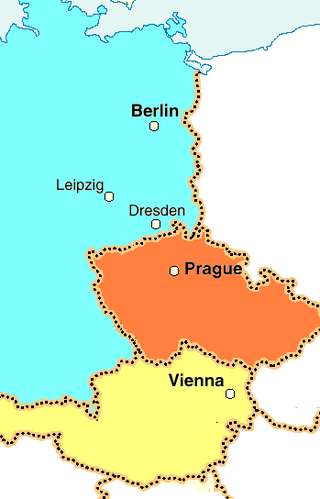
One of the longest adulthood journeys of Wolfgang Amadeus Mozart was a visit, beginning in spring 1789, to a series of cities lying northward of his adopted home in Vienna: Prague, Leipzig, Dresden, and Berlin.
"Madamina, il catalogo è questo" is a bass catalogue aria from Mozart's opera Don Giovanni to an Italian libretto by Lorenzo Da Ponte, and is one of Mozart's most famous and popular arias.
Noises, Sounds & Sweet Airs is a 1991 opera by Michael Nyman that began as an opera-ballet titled La Princesse de Milan choreographed by Karine Saporta. The libretto is William Shakespeare's The Tempest, as abridged by the composer. The title is derived from Caliban's line, "This isle is full of noises, sounds, and sweet airs, which give delight and hurt not." It premiered in June 1991 in Hérouville-Saint-Clair, Calvados, France, with the L'Ensemble de Basse-Normandie conducted by Dominique Debart. Three members of Saporta's dance company provided the singing.
Tristram Shandy is an unfinished opera project by Michael Nyman based on his favorite novel, The Life and Opinions of Tristram Shandy, Gentleman, by Laurence Sterne, begun in 1981. The project has been perpetually on hold for want of a commission, but at least five excerpts of the opera have been performed publicly, and one has been released on a commercial recording.
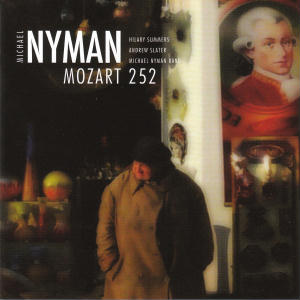
Mozart 252 is a 2008 album by Michael Nyman with the Michael Nyman Band, Hilary Summers, and Andrew Slater, celebrating the 250th anniversary of Wolfgang Amadeus Mozart's birth. Although "Revisiting the Don," one of only two newly written works on the album, was commissioned and performed in 2006, the album's title is a joke on its lateness as an album, released 252 years after Mozart's birth. The album also includes "In Re Don Giovanni," Nyman's first composition for the band, which is based on the first fifteen bars of "Madamina, il catalogo è questo" from Don Giovanni, six selections from Peter Greenaway's film, Drowning by Numbers, in which he was instructed to base the music on the slow movement of Mozart's Sinfonia Concertante K. 364, and two duets and an aria from Nyman's television opera, Letters, Riddles and Writs, in this recording featuring bass Andrew Slater as Leopold Mozart and contralto Hilary Summers as Wolfgang.

Alexander Bălănescu is a Romanian violinist, and founder of the Balanescu Quartet.
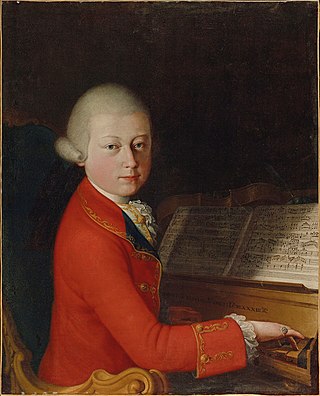
Between 1769 and 1773, the young Wolfgang Amadeus Mozart and his father Leopold Mozart made three Italian journeys. The first, an extended tour of 15 months, was financed by performances for the nobility and by public concerts, and took in the most important Italian cities. The second and third journeys were to Milan, for Wolfgang to complete operas that had been commissioned there on the first visit. From the perspective of Wolfgang's musical development the journeys were a considerable success, and his talents were recognised by honours which included a papal knighthood and memberships in leading philharmonic societies.
Lindsay Steven Posner is a British theatre director, known for his work in London's West End and at the Royal Court Theatre, the Royal Shakespeare Company and the National Theatre, particularly plays by David Mamet.
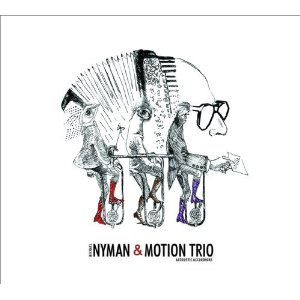
Acoustic Accordions is a 2010 album by Michael Nyman and Motion Trio featuring Nigel Barr. It contains covers of popular Michael Nyman tracks from Letters, Riddles and Writs, Drowning by Numbers, Prospero's Books, The Diary of Anne Frank, The Draughtsman's Contract, and The Piano, as well as an original track by Janusz Wojtarowicz, leader of Motion Trio, who also arranged the works for accordion.

Mozart's birthplace is the birthplace of Wolfgang Amadeus Mozart at No. 9 Getreidegasse in Salzburg, Austria. The Mozart family resided on the third floor from 1747 to 1773. Mozart himself was born here on 27 January 1756. He was the seventh child of Leopold Mozart, who was a musician of the Salzburg Royal Chamber.